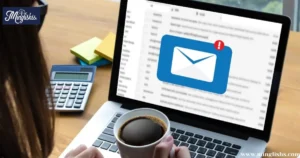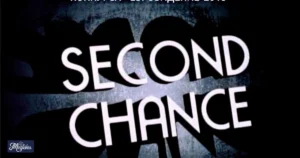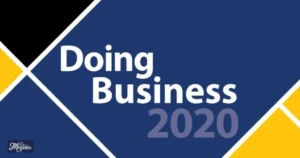“Enhance your email communication with these alternatives to ‘please respond’ that make your requests clear and polite.”
In our digital age, email has become one of the most common forms of communication. Whether you’re reaching out for work, a personal favor, or seeking feedback, how you phrase your requests in an email can make all the difference. One of the most commonly used phrases in emails is “Please respond.” While this phrase is straightforward, there are many other ways to ask for a reply that might be more fitting for the tone or context of your message. The way you ask for a response can show professionalism, politeness, and clarity.
In this blog, we will explore 35 other ways to say “Please respond” in an email. Whether you are drafting an email to a colleague like Sarah, a client like John, or a friend like Emma, having a variety of expressions at your disposal will allow you to customize your messages to suit the situation. Each of the alternatives will include a specific scenario in which it can be applied, a subject explanation to clarify its usage, and additional tips to help you choose the best option for your communication needs.
By using these alternatives, you’ll be able to communicate more effectively and create a better email experience for both you and your recipient. You’ll have a range of options to choose from when you need someone to get back to you, ensuring that your emails are clear, polite, and professional.
1. “I Look Forward to Hearing from You”
Scenario
You’re reaching out to a colleague like Sarah, asking for her feedback on a project. You want her to respond but don’t want to come across as too demanding.
Subject Explanation
This is a polite and friendly way to invite someone to respond, especially when you’ve given them ample time to review something. It conveys that you value their input and are waiting for their response with anticipation.
Additional Tips
This phrase works best when you’re already familiar with the recipient and want to maintain a cordial relationship. It’s perfect for both professional and personal emails, as it doesn’t sound too formal or too casual.
2. “Please Let Me Know Your Thoughts”
Scenario
You’ve sent an email to your manager, John, asking for approval on a report. You need his response to move forward.
Subject Explanation
This is a great way to invite someone to share their opinion or feedback. It’s a little softer than “please respond,” as it encourages a dialogue, not just a simple yes or no answer.
Additional Tips
This phrasing is particularly useful when you’re asking for advice or opinions. It opens the conversation up for more detailed responses.
3. “Your Response Would Be Appreciated”
Scenario
You’ve sent a query to a potential client, Emma, regarding their needs for an upcoming project. You’d like her feedback to begin planning.
Subject Explanation
This phrase is polite and expresses gratitude for the recipient’s time. It’s less direct than “please respond” but still conveys that you are expecting an answer.
Additional Tips
This option can be used when you want to remain polite but not too urgent. It’s often used in professional emails, especially when dealing with clients or formal requests.
4. “I Would Appreciate Your Feedback”

Scenario
You’ve shared a proposal with a colleague like Sarah and need her feedback to finalize your presentation.
Subject Explanation
This is a more formal and polite way of asking for a reply. It shows respect for the recipient’s opinion and time.
Additional Tips
This phrase works well when you’re seeking in-depth feedback or require a response on something that needs their input. It helps maintain a professional tone.
5. “Looking Forward to Your Reply”
Scenario
You’ve contacted a potential collaborator, John, about working together on a project. You’re awaiting a response to proceed.
Subject Explanation
This expression is a subtle way of indicating that you are waiting for a response. It’s polite, and shows that you are anticipating their reply with interest.
Additional Tips
This phrasing is best used when there’s no urgency but you still want to encourage a response. It’s commonly used in business emails and in casual communication.
6. “Could You Kindly Respond at Your Earliest Convenience?”
Scenario
You’ve emailed a customer service representative like Sarah, asking for assistance with a product issue. You want a reply but are mindful of their schedule.
Subject Explanation
This is a courteous and less pushy way to ask for a response. It shows understanding that the recipient may need time but still encourages them to reply when possible.
Additional Tips
This phrase is ideal when you want to be polite and respectful of the recipient’s time. It’s especially useful in formal or customer service emails.
7. “I Would Be Grateful for Your Reply”
Scenario
You’re asking your colleague Emma for a status update on a shared task that’s due soon.
Subject Explanation
This phrase adds an element of gratitude, which can make the recipient feel more appreciated for taking the time to respond.
Additional Tips
This expression is a bit more formal and can be used in emails where you want to show that their response is important to you.
8. “Please Confirm at Your Convenience”
Scenario
You’ve made a request to a business partner, John, asking him to confirm the details of an upcoming meeting.
Subject Explanation
This is a polite way to ask for confirmation without implying urgency. It’s useful when you need someone to verify information or approve details.
Additional Tips
It works well when you don’t need an immediate response but still require confirmation in due time.
9. “Would You Mind Letting Me Know?”
Scenario
You’ve sent an email to a friend like Emma, asking if she can attend an event with you. You don’t want to pressure her but would like a response.
Subject Explanation
This phrase softens the request, making it feel more like a favor than a demand. It’s friendly and polite without being too forceful.
Additional Tips
It’s perfect for casual emails where you’re asking for a small favor or a simple response without urgency.
10. “Can You Please Acknowledge?”
Scenario
You’ve sent a proposal to a colleague like Sarah, and you need confirmation that she has received it.
Subject Explanation
This is a clear way to ask for an acknowledgment of receipt without requesting a detailed response.
Additional Tips
Use this phrase when you need a quick confirmation but aren’t looking for further feedback or input.
11. “I Would Love to Hear Your Input”
Scenario
You’ve reached out to your boss, John, for his opinions on a new idea for the company.
Subject Explanation
This phrase expresses enthusiasm about receiving feedback, making it sound less formal and more engaging.
Additional Tips
This is a great option when you want to encourage an open conversation and are interested in detailed feedback.
12. “Could You Please Share Your Thoughts?”
Scenario
You’ve asked your colleague, Emma, to weigh in on a recent discussion you had at work.
Subject Explanation
This phrasing encourages the recipient to offer more detailed insights or ideas. It’s particularly effective when seeking opinions.
Additional Tips
It’s great for brainstorming or when you need someone’s perspective on a matter.
13. “Would You Be Able to Respond Soon?”
Scenario
You’ve sent an urgent request to your supervisor, Sarah, about an upcoming project deadline.
Subject Explanation
This adds a sense of urgency to your request without sounding overly demanding.
Additional Tips
Use this phrase when a response is needed soon but you don’t want to sound too insistent.
14. “Please Reply When You Have a Moment”
Scenario
You’ve contacted a client, John, asking for approval on a document.
Subject Explanation
This is a polite way to ask for a response while acknowledging that the recipient may be busy.
Additional Tips
It’s perfect for situations where you’re not in a rush but still need a reply.
Other Ways to Say Pleasure Doing Business with You
15. “I Would Be Thankful for a Response”
Scenario
You’ve sent an email to a colleague, Emma, asking for her feedback on a project proposal.
Subject Explanation
This phrase shows appreciation and gives a sense of gratitude for the recipient’s time.
Additional Tips
It’s often used in professional emails to ensure a polite tone.
16. “Can You Get Back to Me Soon?”
Scenario
You’ve sent a request to your manager, John, for an update on a task you both are working on.
Subject Explanation
This is a polite yet direct way to ask for a reply when time is of the essence.
Additional Tips
Use this when you’re waiting for information and need a timely response.
17. “I Look Forward to Your Input”

Scenario
You’ve emailed a colleague like Sarah, asking for suggestions on a project.
Subject Explanation
This phrase makes it clear that you value their feedback and are waiting for their insights.
Additional Tips
It works well when you’re requesting advice or guidance.
18. “Would It Be Possible to Hear from You?”
Scenario
You’re requesting a follow-up on a proposal you sent to a potential client.
Subject Explanation
This is a polite and respectful way to ask for a response, especially if you want to keep the tone formal.
Additional Tips
It’s ideal for formal business emails or when dealing with important matters.
19. “I Would Appreciate Your Response”
Scenario
You’ve sent an inquiry to a supplier regarding pricing details and need a prompt response.
Subject Explanation
This phrase is professional and conveys that you value the recipient’s reply.
Additional Tips
It’s widely used in business communication, especially when requesting urgent or important information.
20. “I Await Your Reply”
Scenario
You’ve reached out to a potential collaborator for confirmation of a meeting time.
Subject Explanation
This is a formal way of expressing that you are waiting for a response.
Additional Tips
It’s best used in professional or formal settings.
21. “Please Don’t Hesitate to Reply”
Scenario
You’ve sent an email to a client with some requested information and want them to feel comfortable reaching out.
Subject Explanation
This phrase invites a response and reassures the recipient that it’s easy to get in touch.
Additional Tips
Use this when you want to maintain an open line of communication.
22. “Can You Please Let Me Know?”
Scenario
You’ve asked a team member for an update on their progress with a specific task.
Subject Explanation
This phrase is clear, simple, and polite, encouraging the recipient to respond without any urgency implied.
Additional Tips
Ideal for situations when you need information but don’t require an immediate reply.
23. “I Would Be Happy to Hear Back From You”
Scenario
You’ve sent an email to a business partner, Emma, about a project update.
Subject Explanation
This is a warm and friendly way to invite a response.
Additional Tips
It’s great for maintaining positive relationships while waiting for an answer.
24. “I Am Eager to Hear Your Response”
Scenario
You’ve asked a colleague like Sarah for her input on a crucial decision.
Subject Explanation
This phrase conveys excitement and eagerness for the recipient’s reply.
Additional Tips
Use this when you want to emphasize the importance of the response in a positive way.
25. “Your Input Would Be Very Helpful”
Scenario
You’ve reached out to your manager, John, asking for his guidance on a project.
Subject Explanation
This phrase highlights how valuable their response would be.
Additional Tips
It encourages the recipient to respond and assures them that their input is valuable.
26. “I Look Forward to Your Thoughts”
Scenario
You’ve emailed a client, Emma, asking for her feedback on a proposal.
Subject Explanation
This is a subtle, polite way to request a reply. It implies that you are eagerly awaiting their opinion.
Additional Tips
Works well for professional contexts where feedback is crucial.
27. “Can You Kindly Reply When Possible?”
Scenario
You’ve requested an update from a colleague like Sarah on a shared task.
Subject Explanation
This phrase shows respect for the recipient’s time and asks for a reply at their earliest convenience.
Additional Tips
Use this when time is important, but the situation isn’t urgent.
28. “Would You Be So Kind as to Respond?”
Scenario
You’ve emailed a client or business associate about a decision that requires their input.
Subject Explanation
This is a very polite and formal way to request a response.
Additional Tips
Best used in formal or client-facing emails where maintaining professionalism is key.
29. “Please Respond at Your Convenience”
Scenario
You’ve asked a colleague for an update on a project and are not in a rush.
Subject Explanation
This expression is soft and polite, perfect for less urgent situations.
Additional Tips
Ideal for maintaining professionalism while giving the recipient time to reply.
30. “Looking Forward to Your Feedback”
Scenario
You’ve sent an email to a business partner, Emma, asking for suggestions.
Subject Explanation
This phrase shows that you are expecting a reply, specifically requesting feedback.
Additional Tips
Great for asking for advice or input on a project.
31. “Can You Please Confirm Receipt?”
Scenario
You’ve sent an important document to a colleague like Sarah and need confirmation that they’ve received it.
Subject Explanation
This is a polite way to confirm receipt without needing further details.
Additional Tips
Use this when you need a quick acknowledgment of the document.
32. “Can You Please Update Me?”
Scenario
You’re following up on a report that’s due soon and need an update.
Subject Explanation
This is a polite and straightforward request for a status update.
Additional Tips
It’s perfect for situations where you need to stay informed of progress.
33. “Kindly Get Back to Me Soon”
Scenario
You’re seeking confirmation from a colleague, Emma, about a task completion.
Subject Explanation
This is a polite, yet direct way to ask for a reply when time is important.
Additional Tips
Use this when you need a response promptly but want to maintain politeness.
34. “I Await Your Feedback”
Scenario
You’ve sent a report to a business partner, John, asking for his review.
Subject Explanation
This is a formal and polite way to express that you’re waiting for a response.
Additional Tips
It’s best for formal emails, especially when dealing with important feedback.
35. “Please Let Me Know If You Have Any Questions”
Scenario
You’ve sent an email with details about an event and want the recipient to clarify any doubts.
Subject Explanation
This opens the door for further communication and lets the recipient know they can reach out with any queries.
Additional Tips
This is useful in situations where you want to make sure there are no misunderstandings.
FAQs
1. When should I use “I would appreciate your response”?
This phrase is ideal for formal business communication or when you need a response on important matters. It conveys respect and politeness while showing the importance of the reply.
2. What is the difference between “I look forward to hearing from you” and “I look forward to your reply”?
Both phrases express anticipation for a response, but “I look forward to hearing from you” can feel slightly more personal and informal, while “I look forward to your reply” is more professional and formal.
3. Can I use “Please respond at your convenience” in urgent situations?
No, this phrase is best used when you are not in a rush and are giving the recipient flexibility in their response. It’s polite and respectful but does not imply urgency.
4. Is “Kindly get back to me soon” too demanding?
While this phrase requests a quick response, it remains polite. It’s appropriate when you need an answer promptly but don’t want to sound too forceful.
5. Can I use “Please confirm receipt” in both professional and casual emails?
Yes, it can be used in both contexts. It is most common in professional or formal communication to confirm that the recipient has received important information or documents.
Conclusion
In professional communication, the way you ask for a response can impact the tone and effectiveness of your email. By using these alternatives to “Please respond,” you can choose a phrase that fits the context of your message—whether you’re seeking a quick reply, confirming receipt, or just encouraging feedback. The key is to remain polite, clear, and respectful, tailoring your message to the urgency and nature of your request.

Hi, I’m Isabel: I’m passionate about turning language learning into a fun adventure. I believe in making every word exciting and memorable.










